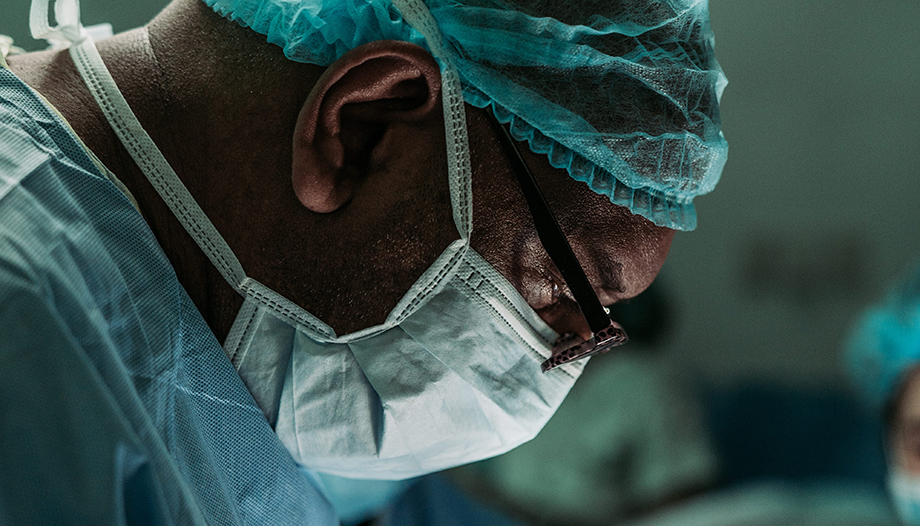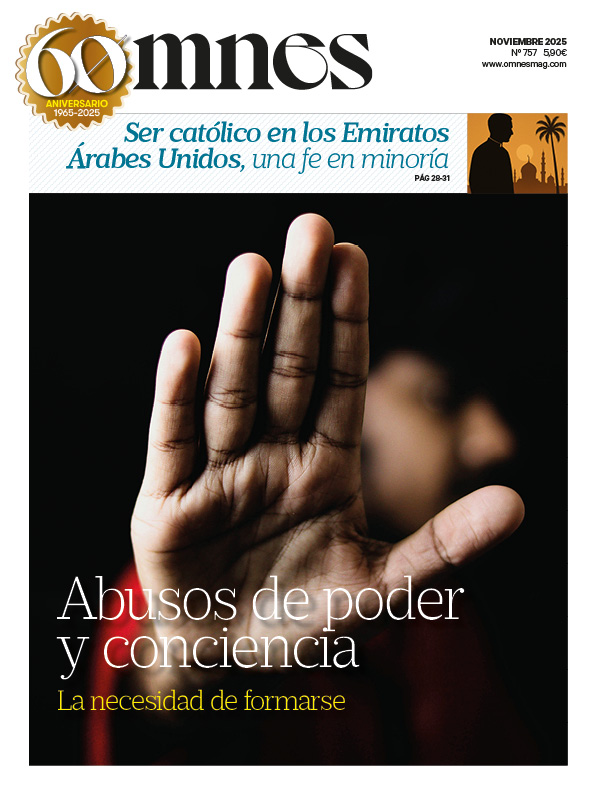"The medical act is not a mere service. There is a person who gives it, therefore there is a conscience behind it that is acting, it is the person who is acting, and conscience is what obliges us to act according to what we believe we should do. And in the medical act, this means acts oriented to health, to the restitution of the patient's health at all times".
This was perhaps the first message with which Dr. Rafael del Río Villegas, president of the Deontology Commission of the Medical Association of Madrid (Icomem), summarized the colloquium that had taken place at a Day of Debate from the Ethics and Deontology of the Medical Profession, held at the headquarters of the Association, and which you can see below here in full.
The second idea mentioned by Rafael del Río was the consideration of conscientious objection as "a fundamental right or at least having that status; this is what different rulings of the Constitutional Court are pointing out to us, or the treatment it is given when we speak of it because of its link with article 16 of the Constitution, which includes these rights of the individual in terms of religious, ideological and religious freedom. We will refer to this matter later on.
In the debate, the fifth of this conference on ethical issues of the profession, followed by more than three hundred collegiate, intervened as speakers Dr. Juan José Bestard, specialist in preventive medicine and public health, physician at La Paz, and Vicente Soriano, infectious diseases specialist (UNIR).
Both were preceded by an introduction by Dr. Julio Albisúa, associate chief of Neurosurgery at the Fundación Jiménez Díaz, and moderated by Dr. José Manuel Moreno Villares, director of the Department of Clinical Pediatrics at the University of Navarra.
The essence, the care of the sick
Dr. Vicente Soriano had referred at length to the question of "being a physician". In his intervention, he pointed out that "being a physician, the essence of our professional work, well established since Hippocrates" is "to seek the health of the patient, the good of the patient. This has developed over time," and he cited medical researchers such as Edmund Pellegrino, of Georgetown University Medical Center, and Joel L. Gambel, a Canadian, and philosophers such as Xavier Simons.
"Edmund Pellegrino is a great visionary of what medical work is all about," Dr. Soriano said, "of commitment, of the essence of the physician's professional work, which is to take care of the patient; if we cannot cure him, to alleviate the damage he may have; and if we cannot alleviate it, to accompany him to the end. And we live the medical virtues in their greatness, (...) we want the patient to be able to rest, in our consensual decisions with him".
An asset for the patient and society
Further on, Soriano specified: "the medical act is not a product, it is not a commodity, the medical act is a good for society, which also has the obligation to preserve it as such". And he quoted the Canadian Joel L. Gamble, of the University of British Columbia (Vancouver), when he pointed out that "care is not an intervention, that the medical act is not a service. Patients have the right to care, what the physician can give them, which is not just anything of a sanitary nature, it is the medical act. That the physician must consider beneficial for the patient. In other words, and this is in the Code of Ethics: the medical act is not a health service".
Dr. Soriano would quote his conclusions at the end. First, "the practice of medicine must follow the purpose of the profession, i.e., the pursuit of the patient's health". Second: "The medical act must conform to the medical code of ethics. It was first defined 25 centuries ago by Hippocrates, with the triad of precepts: 'cure, relieve, accompany'".
Since the topic of analysis of the day was 'Conscientious objection in the Medical Profession', Soriano also mentioned, among others, Xavier Symons, an Australian philosopher dedicated to health issues, who has recently referred to conscience.
"Conscience is a faculty of human moral psychology. It is the set of principles of human behavior that we consider to identify us, and which we wish to guide our conduct. Conscience does not provide intuitive moral knowledge, but rather a sense of having a moral obligation. [We physicians do not study much of these in medical school, but rather techniques, diagnostic procedures, medications, etc., commented Soriano.] Acting in conscience implies coherence between our thoughts and actions. The recognition of conscientious objection derives from recognizing the moral significance of conscience and the harm that violating it entails".
Conscientious objection
Conscientious objection as a fundamental right was one of the topics addressed by Dr. Juan José Bestard. In his opinion, "conscientious objection is a constitutional right and an autonomous right. Several rulings of the Constitutional Court qualify it as a fundamental right, and yet the latest one does not," warned the specialist in preventive medicine and public health.
Dr. Bestard referred to "the substantial link" of this right with Article 16 of the Constitution, and also indicated that "the TC ruling 160/1987 opens an interpretative door when it says: "in the hypothesis of considering it fundamental...".
However, Dr. Bestard pointed out that conscientious objection "enjoys features inherent to fundamental rights, and the doctrine attributes to it a status: because of its inexorable link with the Article 16 of the Constitution, it has essential content; by Article 53.2 of the Spanish Constitution, it is protected before the TC; although by STV 160/1997 it does not enjoy the reservation of an organic law, but it does enjoy the reservation of an ordinary law".
Institutional objection
Dr. Bestard also alluded to institutional conscientious objection, and stated that "it makes no sense, since conscientious objection is of an individual nature". He also pointed out that "the Code of Medical Dentistry in Spain understands that institutional conscientious objection is not admissible".
This is not a peaceful issue. Well-known jurists, such as professors Rafael Navarro-Valls and Javier Martínez-Torrón, and professor María José Valero, have published analyses and petitions, which they consider "of special importance, both theoretically and practically". These include "expressly recognizing the possibility of institutional objection to the practice of euthanasia and assisted suicide in the case of private institutions, whether for-profit or not-for-profit, whose ethical ideology is contrary to such actions", as stated by Omnes.
On the other hand, Federico de Montalvo, professor of Law at Comillas Icade and now former president of the Spanish Bioethics Committee, considered last year in an interview with Omnes that denying conscientious objection to the euthanasia law exercised by institutions and communities "is unconstitutional". The jurists cited above add that "it would not be superfluous to recognize as an organic law the entire article 16 of the law, without excluding its first paragraph, since it all refers to the development of the freedom of conscience protected by the Constitution".
Crisis of the environment, of culture
In his summary, the president of the Deontological Commission of the Medical Association of Madrid (Icomem), Rafael del Río, made some reflections. Conscientious objection is an expression that stands the test of time," he said, "because it describes something very essential that wants to be preserved in the actions of each person, but it also suffers the wear and tear of time. The word "object", however, does retain a negative aspect, which unfortunately is negative: it apparently implies not accepting, rejecting, criticizing... That is why we ask ourselves what is the right attitude".
"In this sense, conscientious objection from the point of view of the objector speaks of a certain type of crisis, which is not of the institutions, nor of the structures, nor of the parties in particular, but rather of the environment, of the culture itself, at least from his perspective".
In his opinion, "in this sense, the objection is not an isolated act, nor a mere expression of individual freedom, but could touch the very guarantees of the Rule of Law itself, and in many cases, it is necessary for the restitution of some fundamental good that is at stake, those goods that should not be put under discussion".








